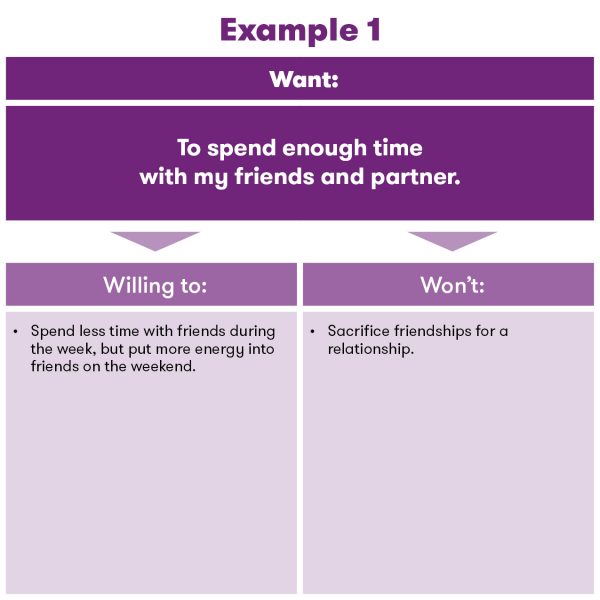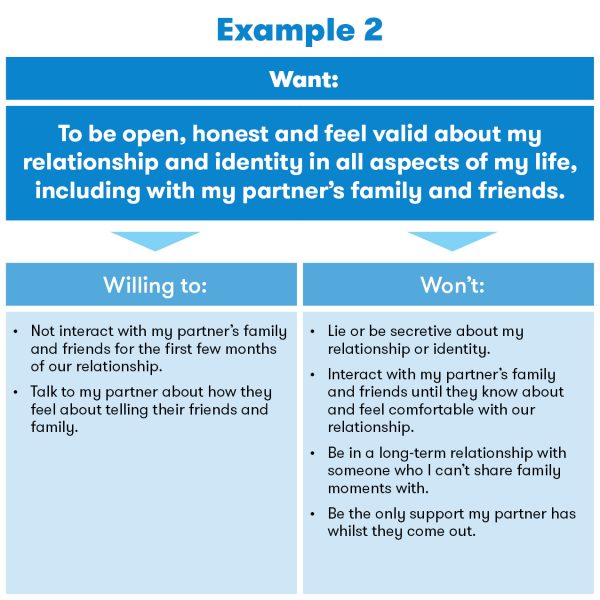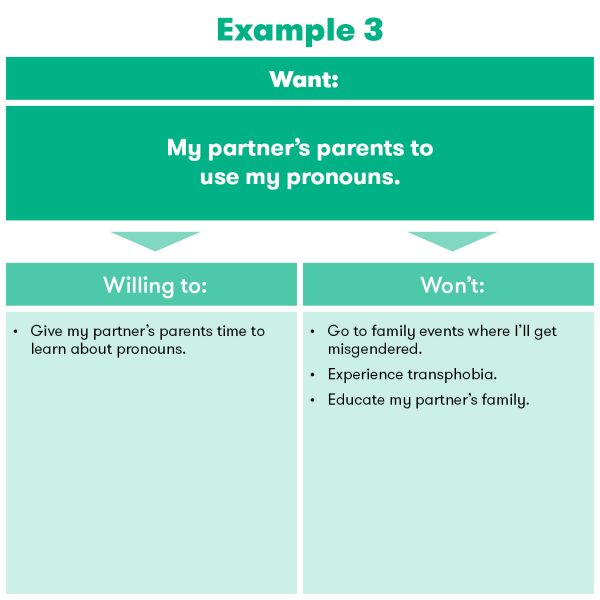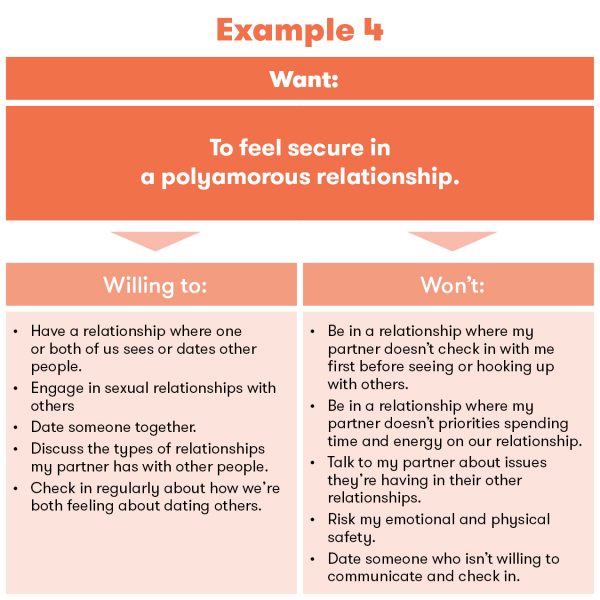Setting Boundaries
“To maintain a healthy relationship, I truly believe that all people involved have a good understanding of what boundaries are and that relationships take work. You can’t just be on autopilot and expect that because you both like the same things that everything will be fine. I also think it’s healthy to have support networks that are separate from your partners.”
– 25, non-binary bisexual person with an intersex variation
Get in Touch
Check in with yourself and your feelings. It’s important to understand your needs and values in order to effectively set boundaries. Take time to reflect on this without worrying about other’s desires.
“…people need to have the language and understanding of themselves to communicate effectively. Empathy and patience are so important also.”
– 24 year old queer cisgender person
Fulfilment and Security
Think about the things in your life you need to feel safe, good and fulfilled.
Examples:
- Time with friends
- Karate
- Having cuddle time
- Feeling good and valid in my queer identity
- Being around people who use my pronouns
- Feel secure in my relationship
“Remembering you need to look after yourself and having your own likes, hobbies and friends. You can complement each other as a couple and work as a team without being codependent.”
-34, non-binary queer
Needs and Wants
Identify what needs, boundaries and wants might be affected by the relationship.
Examples:
- Having less time to spend with other people including friends, family
- My partner hasn’t come out
- My partner’s parents have never interacted with a trans person before and might not be able to use my pronouns
- My partner might want to date other people in the future
Communicate
Create time to talk properly. Pick a time and place where you feel comfortable and up for emotional talks and will feel supported afterwards (e.g., on a weekend before seeing a friend for a sleepover).
Compromises
Finding a compromise should mean that both of your needs and boundaries are still met.
This can be hard if your needs and boundaries are different or at odds with the other person’s.
If you’re struggling to find solutions, it might be important to pause the conversation and have time to think about what you both want and need. It can be good to talk through these situations with people you trust, especially someone who might be removed from the situation, so they can help look at it more objectively.
There is nothing wrong with taking a break or even ending a relationship if compromises can’t be found.
Examples of relationship compromises:
-
-
- We’ve established regular “friend only” times during the week where we both prioritise our friendships.
- My partner wants to tell their friends and family about our relationship, but needs enough time to do it in a way that feels good for them. We’ll spend time together at my house and at school where we can be open about our relationship. Before they tell their family and friends, my partner will reach out to their local queer youth group and counsellor so they have support.
- My partner will talk to their parents about my pronouns and answer questions they might have before I go to their house.
- My partner and I will check in before we date or hook up with other people. We will also wait for a time where we feel confident in how we feel and communicate with each other before opening up our relationship to others.
-
Think about what compromises you are – and are not – willing to make. A good exercise is to make a want/willing/won’t list. Click on the images below to enlarge.
“Respecting identity, respecting differences, respectful honest discussion, respecting space, respecting needs and wants. That’s not to say ‘accept everything your partner does regardless of how it affects you because that’s what respect is’. If your partner does something that doesn’t agree with you, respect that that is part of them and if it’s something you can’t handle, it’s their turn to respect your right to talk about it, find compromise, or walk away.”
– 21 year old, demisexual, greysexual person



